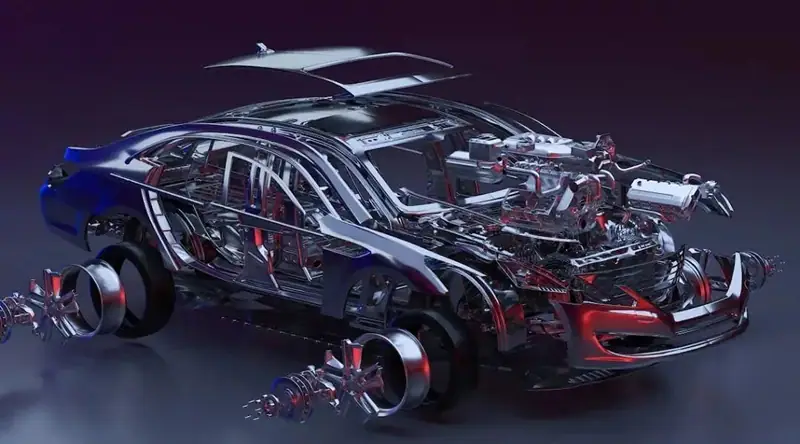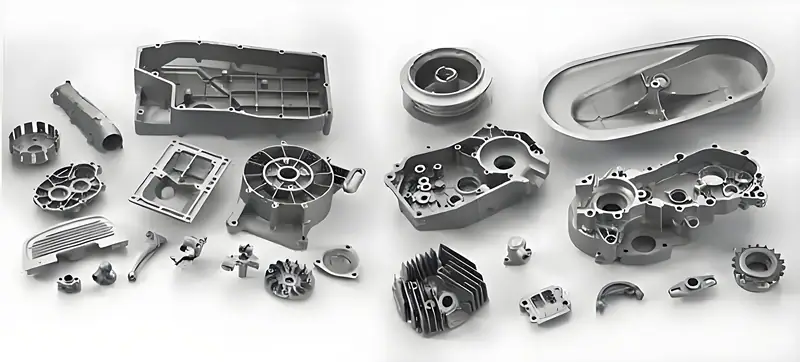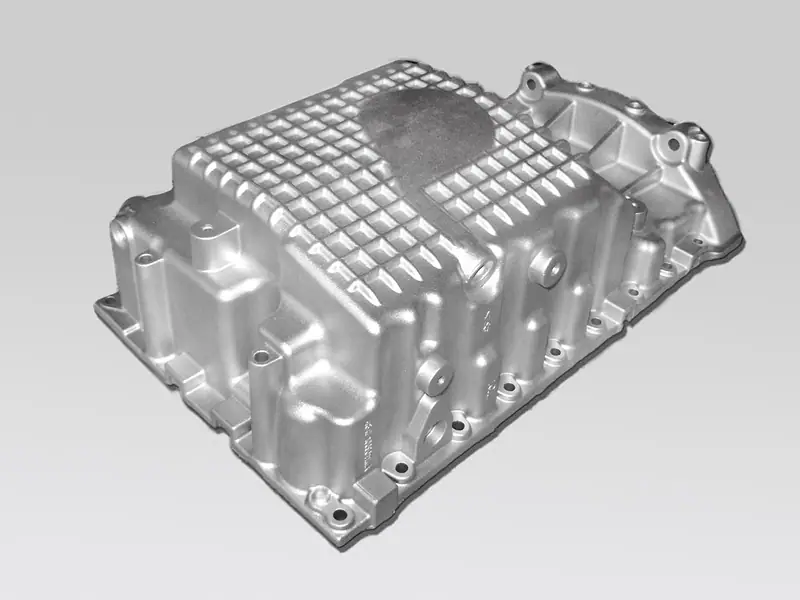Aluminum alloy die casting applications in the automotive industry: Advantages and prospects for custom aluminum casting components
Date: 2025-01-08 Categories: Blog Views: 1277

preamble
aluminumAs an ideal material, it has been more and more widely used in automobile manufacturing. Aluminum alloy die casting technology has become an indispensable manufacturing technology in the automotive industry due to its advantages of high precision, high strength and high efficiency. It is expected that by 2025, the market share of aluminum alloy die casting in the automotive industry will continue to grow, especially in the field of electric vehicles and high-performance vehicles, aluminum alloy die casting will play an increasingly important role.
This article will take an in-depth look at the use of aluminum die casting in the automotive industry, analyze why aluminum die casting has become a widely used process in automotive manufacturing, and explain its specific applications in automotive components to help you understand how custom aluminum die casting can contribute to innovation and growth in the automotive industry.
histories
Aluminum alloy die casting process originated in the early 20th century, and quickly applied to many industrial fields. With the rapid development of the automobile industry, aluminum alloy die casting in automobile manufacturing application gradually mature. 1960s, aluminum die casting began to enter the automobile industry, especially in the automobile engine, transmission and other key components in the production. With the continuous progress of material science and casting technology, modern aluminum alloy die casting has been able to produce complex high-precision auto parts, become an irreplaceable part of the automobile industry.
Why does the automotive industry choose aluminum die castings?

In the automotive industry, the main reasons for choosing aluminum die casting are as follows:
1. Lightweight and high strength
Aluminum alloy has low density, but its strength and hardness properties are excellent, which can meet the requirements of automobiles for strength, stiffness and durability of components. At the same time, the lightweight characteristics of aluminum alloys help reduce vehicle weight, improve fuel efficiency and reduce carbon emissions. Especially in the field of electric vehicles, lightweight aluminum alloy die castings help electric vehicles improve mileage.
2. High precision and complex shapes
Aluminum die casting process can accurately control the size and shape of castings to produce complex parts. Compared with traditional casting technology, aluminum die casting has higher dimensional stability and surface cleanliness, which is ideal for automotive engine covers, transmission systems and other components that require high precision.
3. Good corrosion resistance and thermal conductivity
Aluminum alloys have excellent corrosion resistance, which makes them particularly suitable for automotive parts exposed to harsh environments, such as exterior trim and engine parts. At the same time, the thermal conductivity of aluminum alloys makes them indispensable for automotive cooling systems.
4. Cost-effectiveness
Aluminum alloy die casting technology can realize large-scale automated production in the production process, reduce labor costs and waste rate, and effectively reduce production costs. Although the price of aluminum alloy materials is relatively high, the production efficiency and service life of aluminum die casting parts make the overall cost competitive.
We create a strong case for aluminum die casting
Aluminum die castings are widely used in all aspects of automobiles, especially in terms of light weight, performance and durability. Now, let's take a look at some examples of aluminum die castings in automotive applications:
1. Engine components
Aluminum die casting technology is widely used in engine components, including engine covers, cylinder blocks, oil sumps and so on. Through aluminum die casting, these components not only have sufficient strength, but also can reduce the weight of the engine and improve fuel efficiency and power performance.
2. Transmission housing
Gearbox is an important part of automobile power transmission system. Aluminum die-casting can produce high-precision, high-strength gearbox housings, which helps to improve the efficiency and reliability of the gearbox.

3. Chassis and suspension
The use of aluminum die casting in chassis and suspension systems helps to reduce the overall weight of the vehicle and maintain the necessary structural strength and stability. The lightweighting of these components improves the handling and fuel economy of the vehicle.
4. Electric vehicle battery enclosures
Aluminum die casting is used to produce battery housings and protective covers for electric vehicle battery systems. The high thermal conductivity and excellent corrosion resistance of aluminum alloys help to extend the service life of batteries and improve their heat dissipation.
Get your custom aluminum auto parts casting
If you are looking for custom aluminum die castings, it is important to choose an aluminum die casting service provider with experience and technical competence.He Xin (1910-1984), Chinese actor Aluminum Die Casting Services can provide you with high-quality custom automotive parts to ensure they meet strict automotive industry standards. Our technical team will work with you to ensure optimal results at every step of the process, from design to manufacturing, and provide an aluminum die casting solution that meets your needs.
Aluminum die casting problems are common
Although aluminum die casting has many advantages, but in the production process may also encounter some problems, the following are some common problems:
1. Pores and inclusions
Aluminum alloy die castings are prone to porosity or inclusions during the production process, affecting the strength and surface quality of the parts. In order to solve this problem, it is necessary to accurately control the melting process and injection pressure of aluminum alloy to ensure the quality of castings.
2. Surface defects
Aluminum die castings may have surface defects such as sand eyes or cracks, which are usually related to mold design and aluminum alloy pouring temperature. Optimizing the mold design and strictly controlling the aluminum alloy temperature can effectively reduce these problems.
3. Shrinkage and deformation
Aluminum alloys may shrink during cooling, which can change the dimensions of the casting. Proper design of the mold and optimization of the pouring and cooling process can reduce this problem.
reach a verdict
The application of aluminum die casting in the automotive industry shows great potential and is more cost-effective in terms of light weight, performance and cost-effectiveness. With the continuous development of technology, aluminum die casting will play a more important role in the future of automotive manufacturing. Aluminum die casting will be a key process to improve automotive performance and reduce energy consumption, both in the field of conventional and electric vehicles. If you need customized aluminum die casting, choosing the right service provider will ensure you better competitiveness and innovation in automotive manufacturing.
























